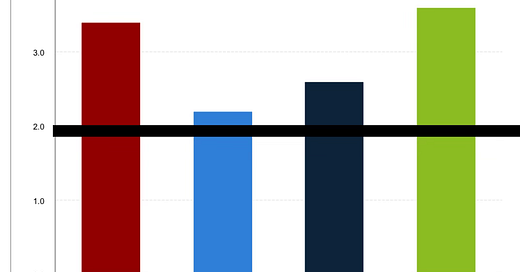In today’s CPI report, inflation has surged to 3.4% year-over-year, culminating in a staggering 20% increase since January 2021. This alarming rise in prices has compounded the economic strain on ind…
Keep reading with a 7-day free trial
Subscribe to The Coastal Journal to keep reading this post and get 7 days of free access to the full post archives.



